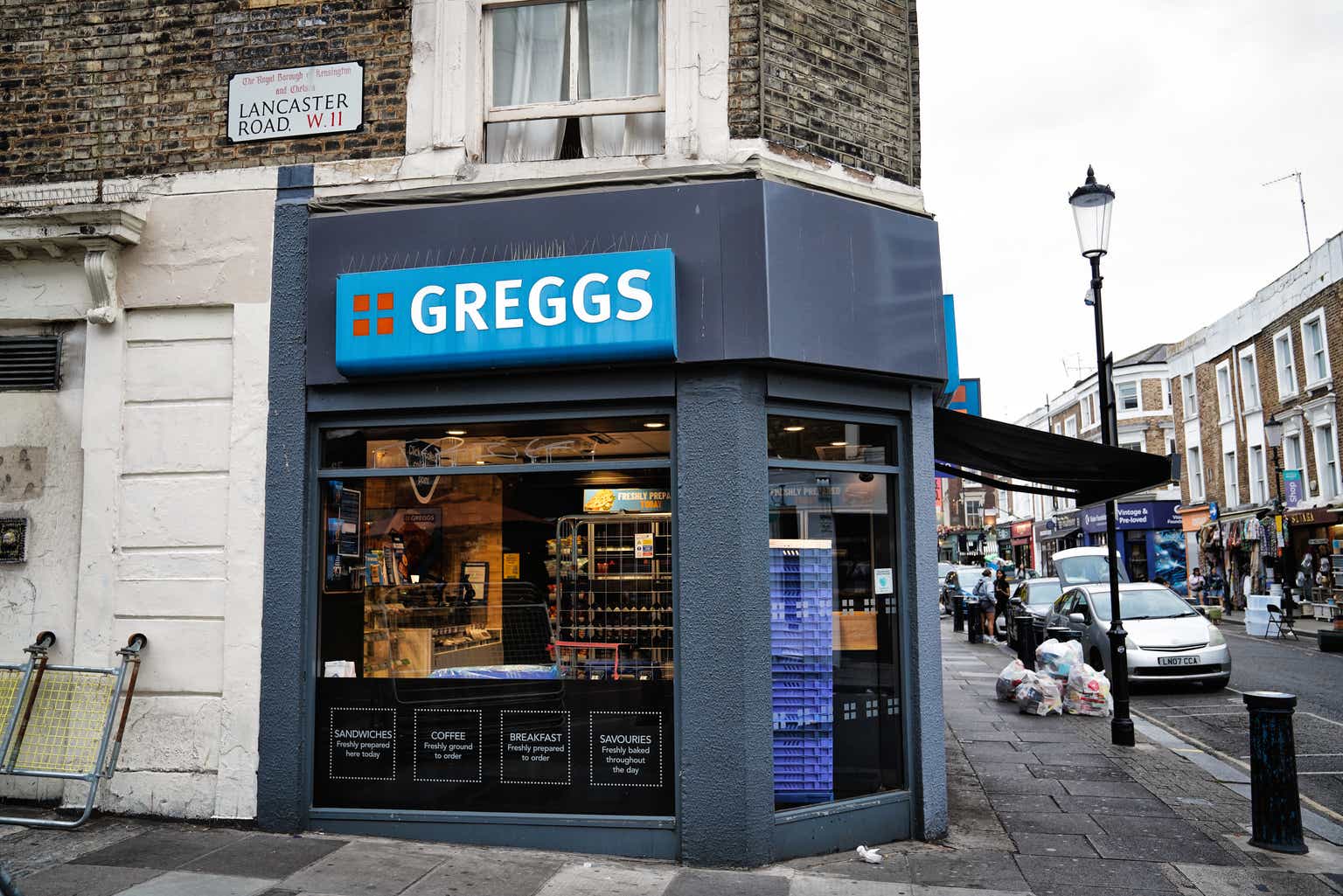Evangelicals Made a Bad Trade
Hitching the evangelical wagon to Donald Trump has meant unhitching it from the life and teachings of Jesus.

In his inaugural address on Monday, Donald Trump declared himself God’s chosen instrument to rescue America. He recalled the assassination attempt he survived last year: “I was saved by God to make America great again.”
Just a few minutes earlier, a beaming Franklin Graham—minister, Trump acolyte, and sometime Vladimir Putin admirer—had driven home the same point during his prayer. “Father, when Donald Trump’s enemies thought he was down and out, you and you alone saved his life and raised him up with strength and power by your mighty hand.”
[Elizabeth Bruenig: If only people actually believed these Trump-as-Jesus memes]
One of the first acts of God’s newly anointed president was to issue pardons or commute the sentences of the nearly 1,600 people charged in the January 6 attack on the Capitol. Trump issued pardons to most of the defendants and commuted the sentences of 14 members of the Proud Boys and Oath Keepers militias, most of whom had been convicted of seditious conspiracy.
Axios reported that the pardons were “a last-minute, rip-the-bandage-off decision to try to move past the issue quickly.” As Trump’s team wrestled with the issue, “Trump just said: ‘Fuck it! Release ’em all,’” an adviser familiar with the discussions told Axios’s Marc Caputo.
More than 150 police officers were injured during the assault on the Capitol. They were hit with baseball bats, flagpoles, and pipes. Aquilino Gonell, a former Capitol Police sergeant who retired because of the injuries he suffered as a result of the assault, was infuriated by Trump’s pardons and commutations. “It’s a miscarriage of justice, a betrayal, a mockery, and a desecration of the men and women that risked their lives defending our democracy,” Gonell told The New York Times’s Luke Broadwater.
Officer Brian Sicknick, who was attacked by the pro-Trump mob, suffered a stroke and died of natural causes the following day. “I think about my brother almost every day,” Craig Sicknick told Broadwater. “He spent his life trying to do the right thing. He did it while he was in the military. He did it as a police officer. He did it in his personal life.” Sicknick added that the lack of accountability for those who stormed the Capitol on January 6 had left him heartbroken.
“We almost lost democracy that day,” he said. “Today, I honestly think we did lose democracy.”
THE IRONY IS HARD TO MISS: The movement that for the past half century was loudest in warning about the dangers of cultural decadence is most responsible for electing a president who personifies cultural decadence. (Trump won more than 80 percent of the white evangelical vote in 2024.) Not a single area of Trump’s life is untouched by corruption.
Although white evangelicals have been firmly in his corner since 2016, the nature of their support has changed. If you talked with many evangelical supporters of Trump then, they expressed a certain queasiness about backing him. They didn’t approve of his immoral conduct, they were quick to say. The reason they rallied behind him was that his policies, particularly on abortion, aligned with their values. It was a transactional relationship; the election against Hillary Clinton was a “binary choice,” they would say time and again. But they assured us that they held no real love or deep loyalty for Trump. If another Republican, without Trump’s baggage, could replace him, so much the better.
It’s different now. Other Republicans, such as Nikki Haley and Ron DeSantis, did step up, and they never stood a chance. Trump has a cultlike hold on great swaths of the evangelical movement. They will stick with him regardless of what he does. Initially, they reconciled themselves to what he said. Then to how he acted. And now they have made their peace with policies and appointments that would have once caused a revolt. To lead Health and Human Services—far and away the most important Cabinet department related to abortion—Trump nominated Robert F. Kennedy Jr., who just last year embraced the legality of on-demand late-term abortions. Kennedy said abortion should be legal “even if it’s full term.”
“My belief is that we should leave it to the woman, we shouldn’t have government involved,” Kennedy said, reflecting views he has held for a lifetime. (Under pressure, he walked back those comments, but only to a point, saying that there should be restrictions on abortions in the final months of pregnancy, when only a tiny fraction of abortions occur.) The Heritage Foundation, which portrays itself as a conservative, ardently pro-life organization, lavished praise on Kennedy when he was appointed.
A staunch pro-life conservative, who requested anonymity in order to speak bluntly, put it to me this way a few weeks ago: “If the pro-life movement isn’t willing to speak out against a radical pro-choice HHS secretary, then what’s the point of having the movement?” he asked. “Why does it even exist?”
[Read: How Trump neutralized his abortion problem]
Trump himself betrayed the pro-life cause during the campaign, as I wrote last August. Yet those in the pro-life movement have, with very few exceptions, gone silent. They remain devoted to him. No other president, including Ronald Reagan, could get away with such a thing. Evangelicals’ reverence for Trump is unlike anything Americans have ever seen.
Eric Metaxas, a popular figure on the Christian right, struggled to “process the import” of Trump’s victory and inauguration. “The significance of it is so huge,” Metaxas said, “we’d have to go back literally to 1776.”
“You cannot overstate the significance of where we are now,” Metaxas continued. “It is monumental.”
Mike Huckabee, a former Baptist minister who served as governor of Arkansas and has been selected by Trump to be the American ambassador to Israel, said of Trump’s victory, “This wasn’t a comeback. It was a resurrection, and it was a powerful one. He might be called President Lazarus after this.” Fealty has drifted toward idolatry.
WHAT IS PSYCHOLOGICALLY INTRIGUING is how bracing and electrifying a figure Trump is to many evangelicals. It is as if his disinhibitions have become theirs. Parents who disapproved of their children saying “damn” are now enthralled by a man who says “motherfucker.” Those who championed modesty and purity culture celebrate a thrice-married serial adulterer who made hush-money payments to a porn star. Churchgoers who can recite parts of the Sermon on the Mount are inspired by a man who, on the day he announced his candidacy for reelection, promised vengeance against his perceived enemies. Christians who for decades warned about moral relativism are now moral relativists; those who said a decent society has to stand for truth have embraced countless lies and conspiracy theories. People who rage at “woke cancel culture” delight in threats to shut down those with whom they disagree. Men and women who once stood for law and order have given their allegiance to a felon who issues pardons to rioters who have assaulted police officers.
Trump is a kind of permission slip; he has unlocked the libertine side of some pretty tightly coiled people, many of whom tend to be legalistic in their thinking and eager to call out the sins, and especially the sexual sins, of others.
But things get stranger still. A lot of evangelicals justify their embrace of Trump on biblical grounds. They insist that they are on God’s side, or perhaps that God is on their side. The more they are pulled into the MAGA movement, the more they tell themselves, and others, that they are being faithful disciples of Jesus, now more than ever, and the more furiously they attack those who don’t partake in the charade.
The cognitive dissonance caused by acting in ways that are fundamentally at odds with what they claimed to believe, and probably did believe, for most of their lives would simply be too painful to acknowledge. The mind has ways of minimizing such discomfort: We rationalize our conduct, justify ourselves, and trivialize the inconsistencies. The story that many evangelicals today tell one another is that they are devoted followers of Christ, fighting satanic forces that are determined to destroy everything they know and love, and willing to stand in the breach for the man called by God to make America great again. It isn’t going to end well.
NOT ALL EVANGELICALS ARE TRUMP SUPPORTERS. Not all evangelicals who voted for Donald Trump are MAGA zealots. And even those who are deserve to be treated with dignity. Politics does not define every aspect of their character.
[From the January/February 2024 issue: My father, my faith, and Donald Trump]
This needs to be said too: Many evangelical churches, the pastors who lead them, and the people who comprise them are doing enormously good work. I have witnessed this with my own eyes, and been the recipient of those who are dispensers of grace. Faith, not politics, is their priority, and many of them have tried in good conscience to align their politics with their faith. When it works, as it did with the abolitionist movement, the global AIDS initiative, refugee resettlement, and protecting religious liberty around the world, it has advanced justice and healing.
But something is amiss. Today the evangelical movement is an essential part of a much larger, and largely destructive, political and cultural movement. Evangelicalism has in many instances become more tribal, unforgiving, and cruel. The world is noticing.
“As a general rule,” the Episcopal priest Barbara Brown Taylor has said, “I would say that human beings never behave more badly toward one another than when they believe they are protecting God.”
Hitching the evangelical wagon to Donald Trump has meant unhitching it from the life and teachings of Jesus. It’s a bad trade.
What's Your Reaction?


































